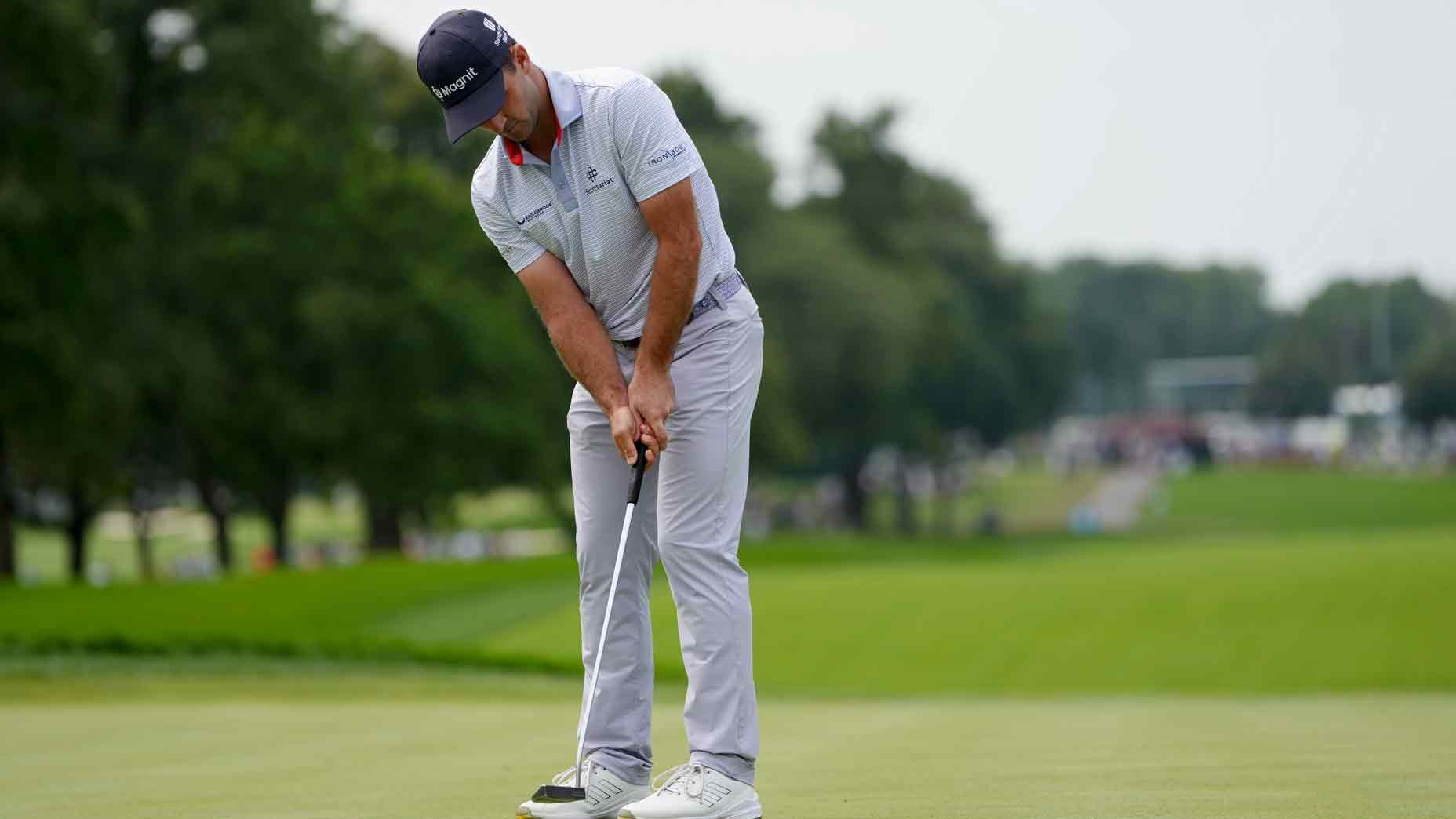5 keys to great putting, according to one of golf’s best putters
[ad_1]

Denny McCarthy is one of the best putters on the PGA Tour.
Getty Images
Since earning his card in 2017, the 30-year-old has led the PGA Tour in Strokes Gained: Putting twice, and finished inside the top three in two other seasons. He’s been outside the top 20 in putting just once during his career, finishing 22nd in 2021. This season, he’s off to another strong start — inside the top 30 and in strong position to be one of the Tour’s best putters yet again.
At this week’s Genesis Invitational, GOLF.com caught up with McCarthy for some tips on how to be a great putter. Here are his five secrets.
1. Find the low point
McCarthy always make sure he knows where the low point of the property is. Knowing where this spot is informs all the other decisions he makes on the greens.
“There’s usually a low point or something that everything breaks towards,” he says. “Everything here kind of goes down the hill toward No. 6. So even if you see an uphill putt, you see some of these holes, like 12 and 13, where it appears it might be tilted a little at you, but they’re actually a little quick. It’s just the effect of going toward the ocean that way.”
The low point might not affect putts at every course as severely as they do at Riv, but it’s generally good to know where that spot is at each track.
“Last week in Phoenix, everything breaks towards a point in the valley,” he says. “You’re always thinking of those things in the back of your mind. Most places have some sort of effect like that.”
2. Use your feet
AimPoint has become extremely popular among Tour pros, and McCarthy is no exception. Over the past year, he’s picked up the art of reading greens with his feet.
“Ever since the Tour got rid of green books, it’s gotten a bit harder on the greens,” he says. “They’ve put pins in trickier spots — very subtle spots. Maybe breaking one way most of the way and then break the other way at the end. When it’s hard to see sometimes, I’ll use my feet.”
But even as an AimPoint proponent, he doesn’t use the technique all the time.
“There’s some straight-forward putts where I know what they’re gonna do and I don’t even put my feet on,” McCarthy says. “There’s some I have a harder time reading, and I’ll use my feet just to confirm my read basically.”
3. One-handed putts
McCarthy starts his practice on the greens the same way Tiger Woods does — with a few putts using only his right hand.
“I find a five-foot straight putt, put two tees in the ground and hit some through it,” he says.
This helps him dial in his feel with a small arc in his stroke path. Plus, it helps him see if his putter is square at impact.
4. Check the lines
To get a feel for how the greens are breaking, McCarthy will set up chalk lines pointing to either edge of the cup.
“I’m always trying to train my eyes close in,” he says. “I wanna see: What does left edge look like? What does a ball out look like?”
5. Get the ball rolling end over end
If your ball doesn’t roll end over end, you have little chance of being a consistent putter. To see if you’re rolling the ball properly, McCarthy recommends using a line on your ball.
“A good test is to line them up when you practice,” he says. “If you’re rolling it end over end, that’s a good indicator that your face is square. I’ve trained myself to get back to square pretty well. Obviously, it helps to have a pretty neutral or very simple path coming back. Using that line on the ball helps me see that I’m rolling it end over end.”

















